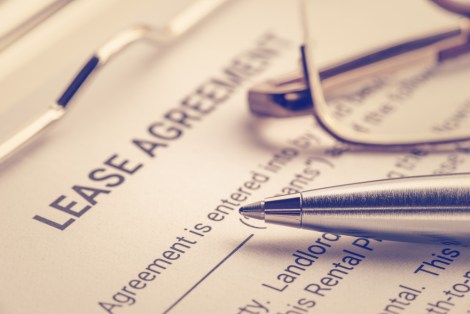Handling Commercial Real Estate Lease Disputes
Commercial real estate leases can be complex legal documents with terms and conditions that impact both landlords and tenants. Despite best efforts to avoid them, disputes over lease terms and responsibilities can still arise. For Pennsylvania businesses that rent commercial space, it pays to understand common areas of disagreement and options for resolving lease conflicts.
has helped businesses navigate commercial real estate lease disputes throughout Pennsylvania. Contact us now at or email us at contact@ to speak with our experienced team of commercial real estate attorneys.

Understanding Potential Sources of Lease Disputes
Several aspects of a commercial real estate lease may lead to lease disputes if interpretations differ between landlords and tenants. It is important to contact a commercial real estate attorney in Pennsylvania if you are experiencing:
Rent Payment Obligations
Disagreements may occur over the base rent amount, the due date, late fees, or application of security deposits.
Repairs and Maintenance
Ambiguous lease language can cause conflicts over who bears responsibility for repairs like HVAC maintenance, parking lot upkeep, plumbing issues, or snow removal.
Permitted Use of the Property
Limitations on how the tenant can use the space, building restrictions on signage, and exclusivity clauses are fertile ground for disputes in .
Operating Expenses
Clauses defining the tenant's share of property taxes, insurance, utilities, and common area maintenance costs often spur disputes.
Assignment, Subletting, and Lease Transfers
Landlords may resist when tenants want to assign the lease or sublet all or part of the space. Conflicts also arise if building ownership changes.
Lease Term and Termination Rights
Interpretations of lease expiration, renewal options, early termination clauses, and holdover provisions frequently differ between the parties.
Building Changes and Alterations
Disagreements often crop up if the landlord wants to renovate or demolish the building before the lease ends.
Strategies for Avoiding Lease Disputes
Careful lease drafting and proactive communications can help tenants and landlords avoid most conflicts:
Engage an attorney experienced in commercial real estate to review lease terms and negotiate tenant-friendly provisions.
Clarify ambiguities in writing to document understandings and prevent misunderstandings later.
Communicate promptly when issues arise to nip disputes in the bud through cooperative solutions.
Comply fully with lease terms to avoid claims of default from the landlord. Keep careful records to verify compliance.
Review options like lease renegotiation, contract amendments, or contract termination before conflicts escalate.
Resolving Commercial Lease Disputes Without Litigation
If disputes arise despite best efforts, litigation should be a last resort. Pennsylvania businesses can often resolve lease conflicts through:
Direct Negotiations
With both sides negotiating in good faith, compromise solutions are frequently achievable without court proceedings.
Mediation
An impartial third-party facilitator helps the landlord and tenant communicate to find middle ground through non-binding recommendations.
Arbitration
Arbitration also utilizes a neutral third party but differs from mediation in that the arbitrator's decision is legally binding once rendered.
Early Neutral Evaluation
Here, an experienced commercial real estate attorney objectively assesses the dispute early on and provides a non-binding opinion on potential case outcomes.
Taking Legal Action for Lease Disputes
If out-of-court resolution efforts fail, Pennsylvania businesses can pursue formal legal action, but should carefully weigh the costs versus benefits:
Consult an attorney about the strength of your case and likelihood of prevailing in court.
Litigation is public, time-consuming, and expensive - legal fees, court costs, business disruptions.
Lawsuits should focus on material breaches with significant damages - pursue negotiation for minor disputes.
Understand remedies available through legal action - eviction, rent abatement, lease termination, monetary awards.
Seek preliminary injunctions to maintain the status quo while the case proceeds if necessary.
Key Takeaways for Pennsylvania Businesses
To limit commercial real estate lease disputes, Pennsylvania businesses should:
Engage legal counsel to review and negotiate favorable lease terms
Maintain open communications with the landlord to quickly address issues
Explore resolution options like negotiation and mediation before litigation
Consult an attorney to realistically assess the merits of potential lawsuits
Focus legal resources on material breaches with significant provable damages
With preparation and a proactive approach, Pennsylvania firms can often resolve lease conflicts without resorting to protracted and expensive lawsuits.
Frequently Asked Questions
1. What are some common areas of dispute in commercial real estate leases?
Some of the most common areas of disagreement include rent payment obligations, repairs and maintenance responsibilities, permitted property uses, operating expense allocations, lease assignment/subletting, lease term and termination rights, and building alterations.
2. What steps can a business take when negotiating a commercial lease to avoid future disputes?
Engaging an experienced commercial real estate attorney to review lease terms, clarifying ambiguities in writing, negotiating tenant-friendly provisions, and maintaining open communications with the landlord can help avoid most lease conflicts.
3. What are some alternatives to litigation that businesses can use to resolve lease disputes?
Direct negotiations between the parties, mediation using a neutral third-party facilitator, arbitration with a binding decision from an arbitrator, and early neutral case evaluation from an attorney are options for resolving many lease disputes without litigation.
4. When should a business consider pursuing formal legal action for a commercial lease dispute?
If alternate resolution methods fail, legal action may be warranted for material contract breaches causing significant damages, but businesses should carefully weigh the costs, risks, likely outcomes, and available remedies before suing.
5. What types of legal relief can businesses seek through commercial lease litigation?
Remedies available via lawsuits include eviction of the tenant, rent abatement, early lease termination, monetary damages for breaches, court orders to prevent changes during litigation, and recovery of legal costs in some cases.
How to Select Your Commercial Real Estate Lawyer
has provided legal council to many commercial real estate owners. With years of experience and knowledge, we look out for you and your business. Contact us now at or email us at contact@ for a free consultation.

